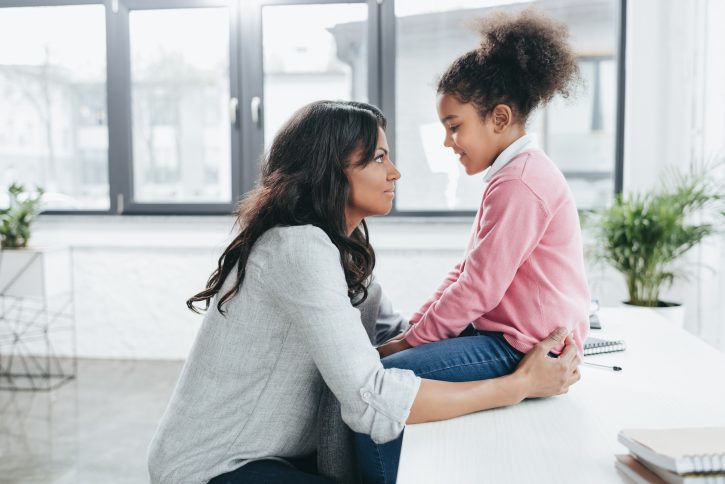
As COVID-19 has continued to be part of our current daily lives, kids may be paying more attention to the news and becoming curious enough to ask questions. Below is some information from Nationwide Children’s Hospital on how to discuss this issue with your child.
Prepare Yourself. Make sure you understand coronavirus yourself (read about it here), and then spend some time thinking about your reactions. It can be helpful to talk to other adults about your fears and concerns so you can appear more calm and confident when talking to your child. Decide on a couple of key points you’d like your child to take away from your conversation and focus on how you can get those ideas across in a developmentally appropriate way. This means giving them basic facts, but not focusing on scarier information or statistics that might overwhelm them. There is a lot of information floating around about coronavirus; there’s no need to present it all to your child.
Have the Conversation. Once you have gathered your thoughts, sit down with your child and start by asking them what they know or what they have heard about coronavirus already. By doing this, you’ll learn whether they have misunderstood something, or if they have incorrect information altogether. After you finish your conversation, ask them what they think about coronavirus as a way to confirm that you have been understood and that they’re in a good place mentally. Going forward, emphasize ways for family members to participate in their normal daily routine while staying safe. Washing hands often and well (with soap and water, for 20 seconds each time), avoiding face touching, using disinfecting cloths to sanitize grocery cart handles and other public surfaces, and staying home when sick are all good examples.
Keeping Life Normal. As much as you can focus on keeping life as normal as possible and continue reassuring your child. Limit how often you talk about coronavirus with other adults when your children are present because that can increase feelings of fear. Try not to respond to additional questions by telling them not to worry; instead, try to repeat the conversations you’ve had before to make them feel safe. If more people in your area test positive for the virus and normal daily life becomes more restricted (i.e. schools close down for longer periods of time, parents begin working remotely, and the need to stay isolated at home increases), keep those conversations going. If your family has to stay home, work together to come up with a “temporary normal” to provide some structure.
Click here to learn more.
Source: Nationwide Children’s Hospital
Help Your Child Prevent the Spread of COVID-19
There are many ways your child can protect themself from getting sick and spreading germs to others. Share these ideas with your child and encourage them to do the following:
- Wash your hands – Use soap and water and scrub for 20 seconds (the time it takes to sing “Happy Birthday” twice). If soap and water are not nearby, use hand sanitizer.
- Keep your distance – Stay away from people who are sick. If you don’t feel well, stay home from school and don’t have any friends over until you feel better.
- Cover coughs and sneezes – When we cough and sneeze, germs go everywhere! It’s important that we cover our mouth and nose with a tissue or the inside of our elbow to keep our germs to ourselves.
- Develop healthy habits – Your immune system helps your body fight off germs. You can keep it healthy and strong by getting lots of exercise, eating fruits and vegetables and getting plenty of sleep at night.